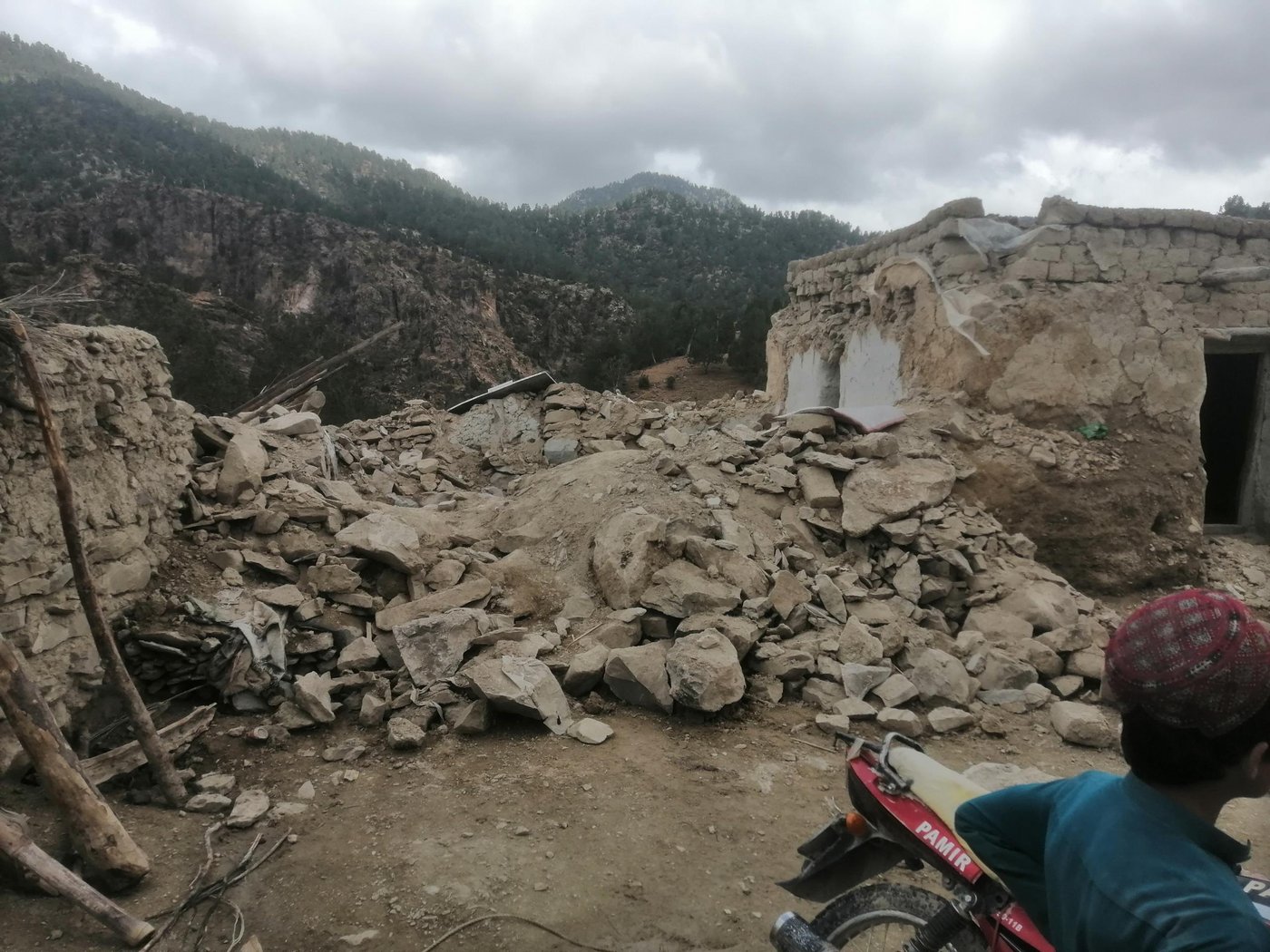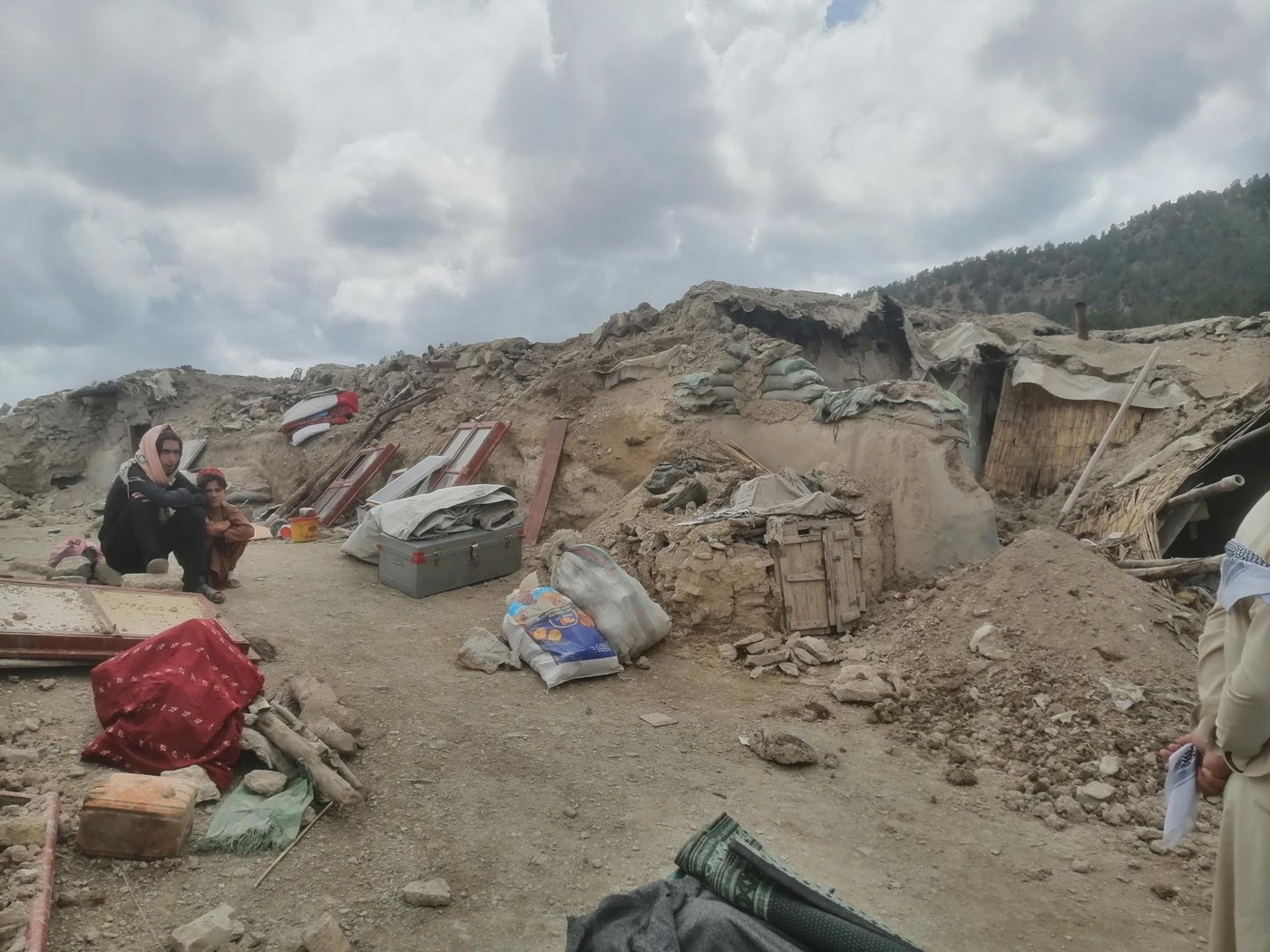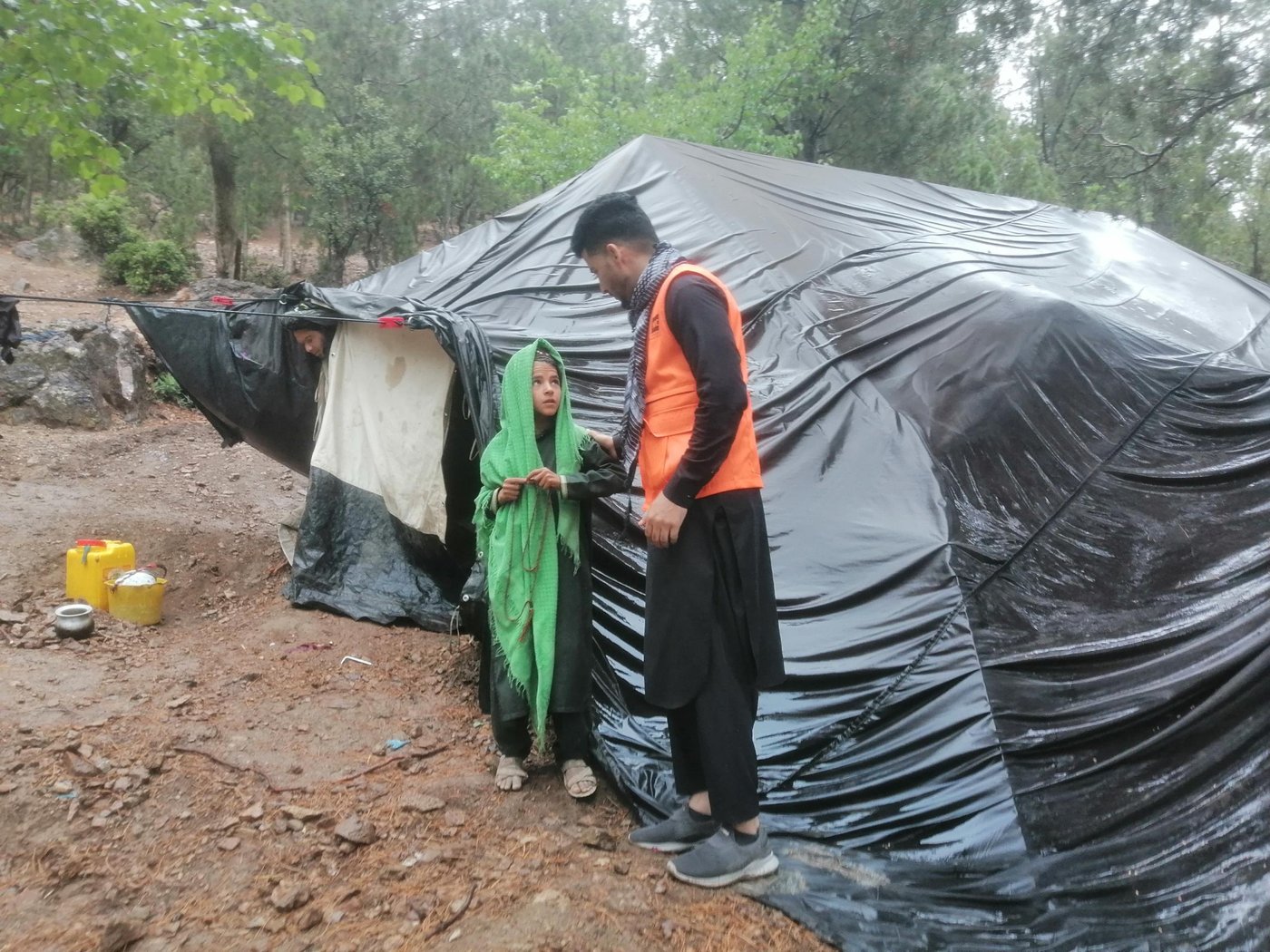The remote eastern provinces of Khost and Paktika, near the Pakistani border, were among the areas most affected by the earthquake. 1,800 households are now confirmed to be destroyed, but the exact levels of damage and destruction are yet unknown.
We need your support for crises like this – donate now

Catastrophic damage
“This looks set to be one of the worst earthquakes that Afghanistan has experienced in decades,” says Becky Roby, advocacy adviser for NRC Afghanistan. “The level of destruction is likely to be far higher than the numbers we currently have due to the mountainous nature of the areas impacted.”
The number of casualties is rising as search and rescue operations continue to be led by the de facto authorities. Helicopters are being used to reach people in rural, hard-to-reach areas, taking urgent medical supplies and food provisions.

Our emergency response
Our NRC teams mobilised immediately to assess needs and begin coordinating emergency shelter and cash support. We have a team on the ground in the Spera district of Khost province, and another team has been deployed to Paktika to evaluate the situation.
The earthquake heaps more devastation on a country already reeling from 40 years of war and recurrent natural disasters, and an economic and financial crisis following the Taliban’s rapid rise to power.
“Millions of Afghans are currently living on the edge of survival,” says Roby. “They’ve spent their savings and sold their belongings over the winter just to survive, and this makes them incredibly vulnerable to shocks like earthquakes.”
Disasters are fuelling displacement
Some 1.3 million people were displaced within Afghanistan last year, a record high number.
“Environmental disasters such as earthquakes and droughts are regular occurrences in Afghanistan, remaining one of the key drivers of displacement,” says Neil Turner, country director for NRC in Afghanistan.
“Cascading impacts of climate change and a deepening economic crisis make it more difficult to achieve durable, long-term solutions for displaced Afghans.”
NRC has been present in Afghanistan since 2003. We have 1,400 Afghan employees and work in 14 provinces across the country. Our teams assisted over 840,000 people in 2021 and are ready to help those who need us now.


